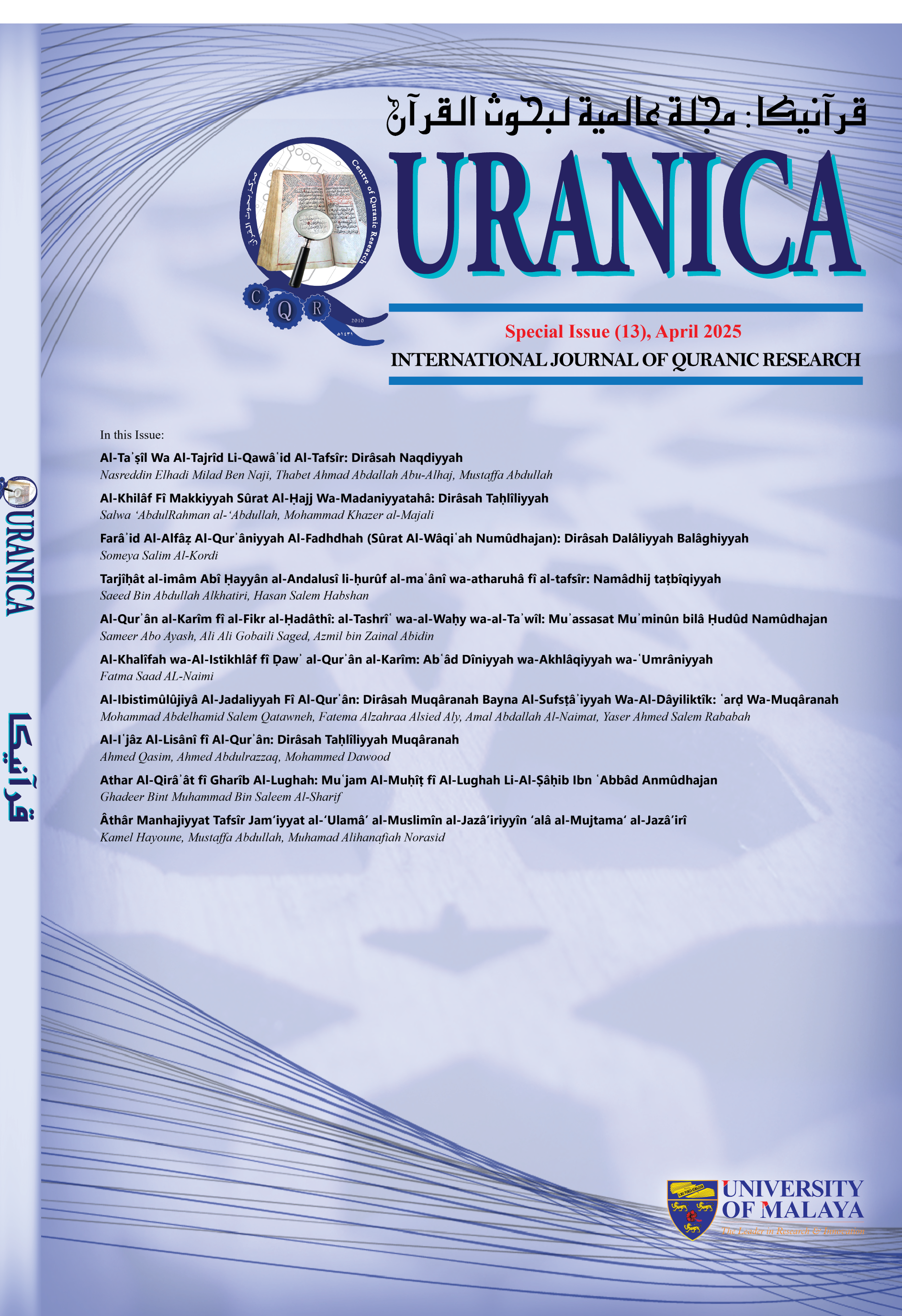Al-Ibistimūlūjiyā Al-Jadaliyyah Fī Al-Qurʾān: Dirāsah Muqāranah Bayna Al-Sufsṭāʾiyyah Wa-Al-Dāyiliktīk: ʿarḍ Wa-Muqāranah
DOI:
https://doi.org/10.22452/quranica.vol17no1.7Keywords:
Quranic, Argumentative Methods, Epistemology, Dialectics, Sophistry, Comparative Method.Abstract
This study attempted to show the importance of the Qur’anic controversy in the manifestation of truth and its role in the approach and harmony between the mental side and the innate and controversial side to arrive at the ascertained truth. It also aimed to unveil the philosophical approaches (Sophisticism and Dialectics) as two examples of the Western mind and method of argument and protest. The study further tried to contribute in reflecting accurately the concept of the Quranic controversy and its implementations. Besides, the study explained the Western philosophical approaches, its foundations and cognitive and philosophical theories. Furthermore, it tried to recognize the Quranic argumentations and its applications and approach and to explain the controversial rules that the Quran practiced when arguing with the opponent. In this context, the study used the comparative and descriptive approach which compares between texts that concern the foundations and methods of Sophisticism and Dialecticism and their approaches in tackling the concept of philosophy on one side and the Holy Quran on the other. The study found out that the sophist argument is based on the principle of absolute suspicion that does not recognize the truth of certainty. The study also revealed the roots of the dialectic controversy which is based on the perpetuation of conflict from reality to though and vice versa. The study further described the Holy Quran with its scientific method to reach the facts through the proof and sensual and mental evidence that require the safety of instinct and non-acceptance of controversy that is based on the role and the infinite sequence in theory and reality. The purpose of the Qur’anic debate is to reach certainty, the comprehensiveness of its methodology, its foundations and its structure in the concept of controversy and its ability to solve outstanding intellectual problems. As such, the study explained the concept of controversy linguistically and idiomatically, defined the concept of controversy in Sophisticism and Dialecticism, and clarified the philosophical foundations that paved the way for such international approaches in relation to controversy and its comparison with the Quranic approach. The study also used examples to show the intelligent approach practiced by the Quran both at the theoretical and practical levels of the concept of controversy in terms of goals, foundations and even the aesthetical and ethical sides.
Downloads
Downloads
Published
Issue
Section
License
Disclaimer
QURANICA makes every effort to ensure the accuracy of all its contents. However, opinions, discussions, views and recommendations are expressed in this journal do not necessarily reflect the official policy of QURANICA or views of its editors or publishers. Therefore, QURANICA and its publishers will not be liable for any controversy may be arisen. The journal reserves the right, at its sole discretion, to change its terms and conditions of publications.
Copyright
It is a condition of publication that manuscript submitted to the journal have not been published, accepted for publication, nor simultaneously submitted for publication elsewhere. By submitting a manuscript, the author(s) agrees that copyright for the article is transferred to the publisher, if and when the manuscript is accepted for publication.






